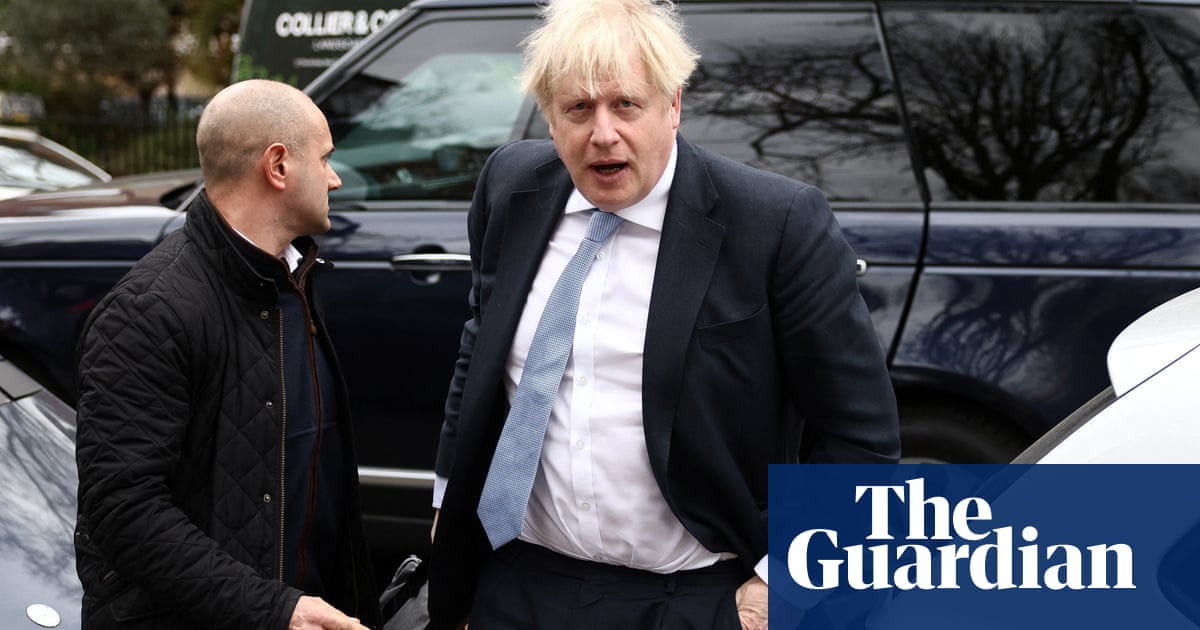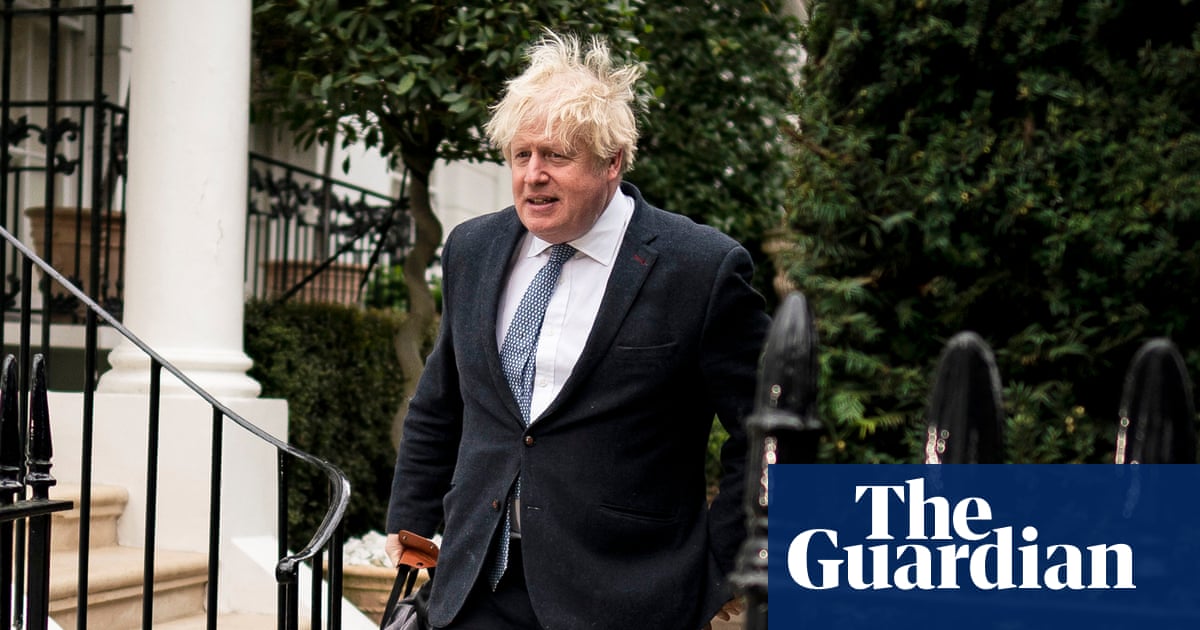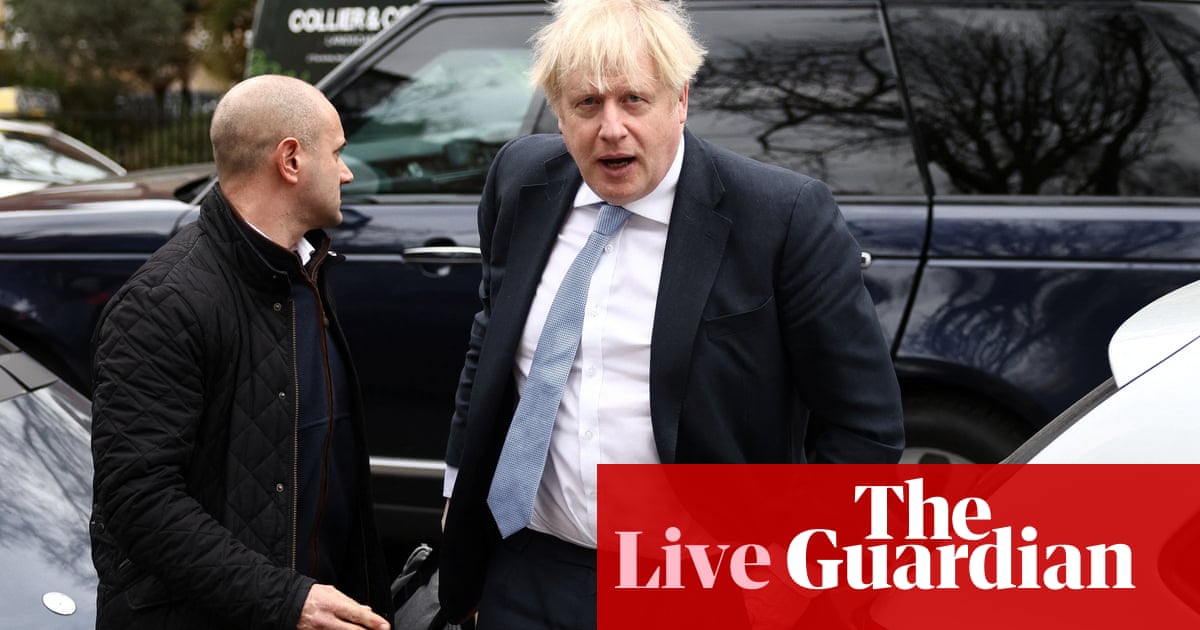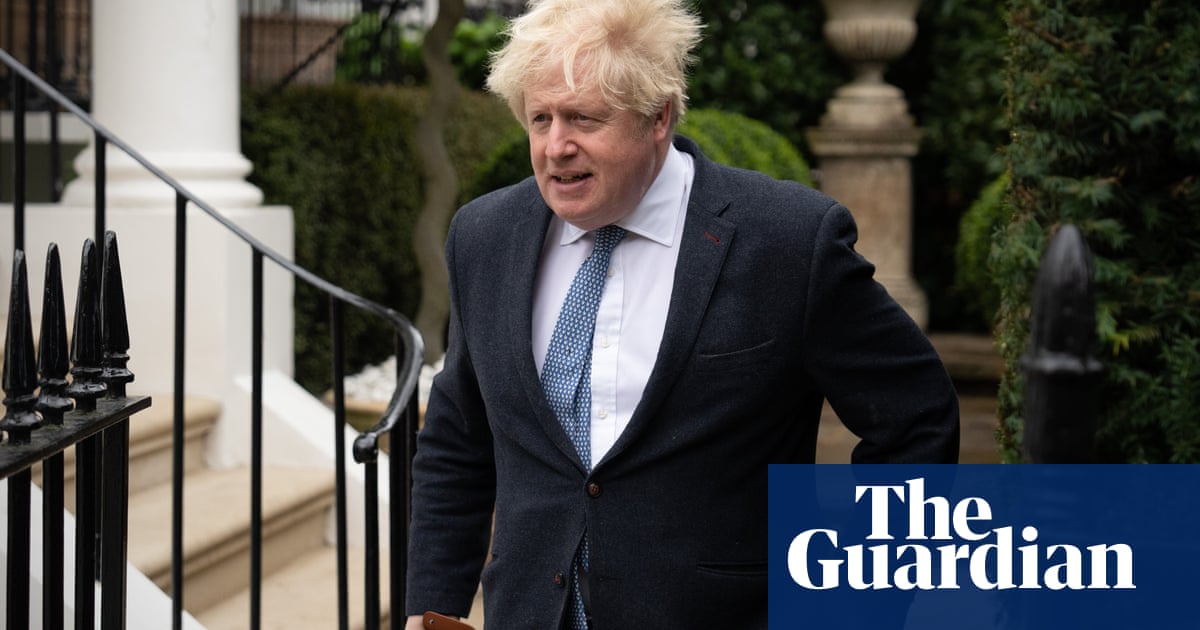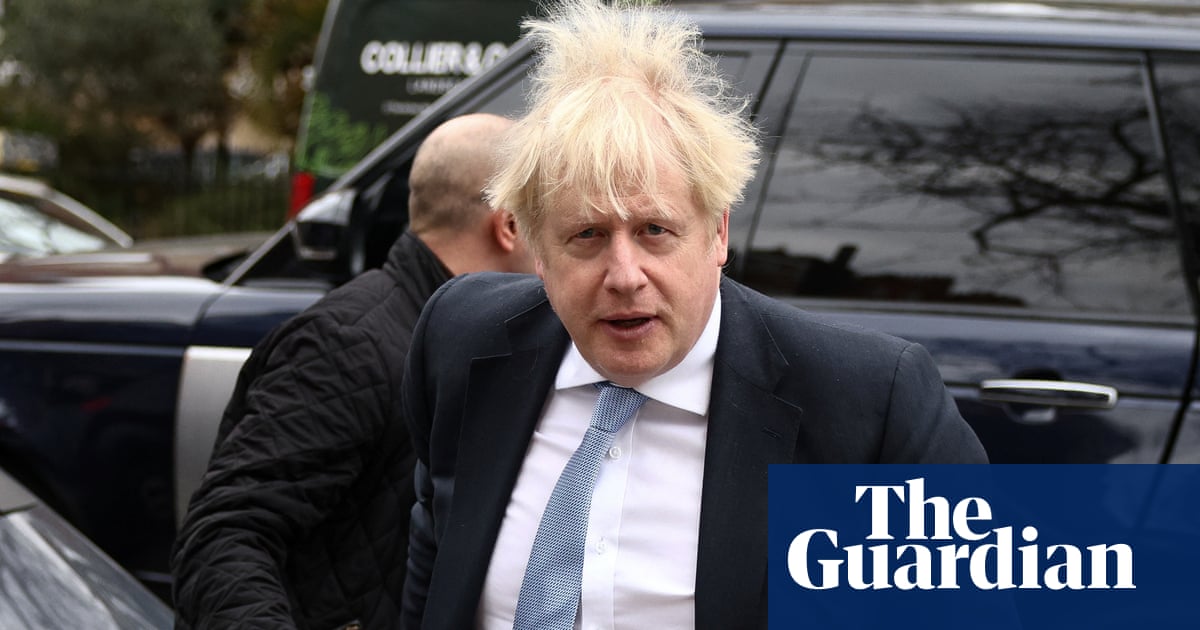
Boris Johnson faces a battle for his future in parliament after a cross-party committee found there was significant evidence he misled MPs over lockdown parties, and that he and aides almost certainly knew at the time they were breaking rules.
The damning report includes one witness saying the then prime minister told a packed No 10 gathering in November 2020, when strict Covid restrictions were in force, that “this is probably the most unsocially distanced gathering in the UK right now”.
Other new evidence includes a message from a No 10 official in April 2021, six months before the first reports of parties emerged, saying a colleague was “worried about leaks of PM having a piss-up – and to be fair I don’t think it’s unwarranted”.
The details came in a report from the Commons privileges committee, a seven-strong group of MPs, four of them Conservatives, which has been tasked with discovering whether Johnson misled parliament in denying any wrongdoing, and then if this was deliberate.
While the 24-page document is only an interim report, intended to give Johnson notice of lines of inquiry before he testifies later this month, its damning findings and wealth of newly released information make grim reading for the former prime minister and his allies.
“There is evidence that the House of Commons may have been misled in the following ways, which the committee will explore,” the report said, giving four examples, all backed up by lengthy footnotes.
A formal finding that Johnson deliberately misled parliament could see him suspended. Under parliamentary rules, an exclusion of 14 days or longer would mean Johnson’s constituents could seek a recall petition to remove him as their MP, a viable occurrence given the slim majority in his west London seat of Uxbridge and South Ruislip.
Johnson – who was forced out as prime minister last summer after Conservative MPs tired of repeated controversies – responded to the report with an immediate and orchestrated fightback, seeking to discredit the findings and the committee.
Aided by statements from supportive MPs, Johnson said it was “surreal to discover that the committee proposes to rely on evidence culled and orchestrated by Sue Gray, who has just been appointed chief of staff to the leader of the Labour party”.
Gray, the senior Cabinet Office official who led an internal inquiry into the events, which reported last May, quit on Thursday to become Keir Starmer’s chief of staff, prompting accusations from Johnson and his supporters that her report – which Johnson accepted in full at the time – could not now be trusted.
A spokesperson for the privileges committee dismissed Johnson’s arguments, saying the findings were “not based on the Sue Gray report” but on witness accounts and evidence supplied by the government.
In a subsequent TV interview, Johnson insisted the committee had uncovered “absolutely nothing to show that any adviser of mine or civil servant warned me in advance that events might be against the rules; nothing to say that afterwards they thought it was against the rules; nothing to show that I myself believed or was worried that something was against the rules”.
He added: “That for me is a pretty astonishing gap given the huge amount of stuff that they have.”
In contrast, the MPs argue there did seem to be contemporaneous awareness that repeated social gatherings were unlikely to be within the rules, and that the supposed assurances Johnson cited about rules being followed was simply his media team trying to explain events to journalists.
The account of the November 2020 event, when restrictions barred indoor gatherings of two or more people and mandated distancing of 2 metres, says Johnson gave a speech to an audience “standing four or five deep”.
The report also says Johnson is likely to have witnessed the regular Friday night lockdown drinks events in the No 10 press office, and that a visit by the committee proved there was a line of sight from his route back towards his flat.
In November 2021, as the first reports of parties emerged, No 10 officials discussed with Johnson’s then director of communications, Jack Doyle, how to respond. Asked whether “a generic line” might be best, Doyle replied: “‘Covid rules have been followed at all times’ or something.”
Internal messages from No 10 staff shared with the committee show them trying to work out “our best possible defence” when evidence emerged of the gatherings a year later.
In response to a suggestion they described an event as “reasonably necessary for work purposes”, Johnson’s then director of communications said: “I’m struggling to come up with a way this one is in the rules in my head.”
There are also apparent signs that Johnson and his then government tried to impede the committee’s work by withholding or redacting evidence.
The MPs wrote to Johnson on 14 July last year seeking necessary materials, but the response in August was of “documents which were so heavily redacted as to render them devoid of any evidential value”, the report said.
Some material had been redacted even though it was already in the public domain, it added. Unredacted material was provided in November, when Rishi Sunak was in No 10.
Another section detailed that when Johnson was asked personally to submit evidence he said he “held no relevant material”. Six months later, in response to another request, his solicitors supplied the committee with 46 WhatsApp messages between Johnson and five other people.
The report, which emerged without prior notice, followed days of focus on another aspect of Johnson’s record in power, with the release of a vast trove of WhatsApp messages about the response to Covid to the Telegraph newspaper.
A final conclusion is expected to take months, with Johnson expected to give evidence in the week beginning 20 March.
Angela Rayner, Labour’s deputy leader, said the report was “absolutely damning on the conduct of Boris Johnson, not just in the crime but the cover-up”.
Daisy Cooper, the Liberal Democrat deputy leader, called for Sunak to “immediately and publicly commit to backing the committee” if it finds against Johnson.
Allies of Johnson released statements in support of him via his spokesperson, including Nadine Dorries, Mark Jenkinson, Peter Bone and Simon Clarke.
Clarke, a former cabinet minister, said Gray’s appointment to Labour meant there should be “an urgent inquiry” before the privileges committee inquiry continued.
Halting the process would, however, be difficult, as it would need a Commons vote. It would be politically very risky for Sunak to try to whip Conservative MPs into backing such a plan.





